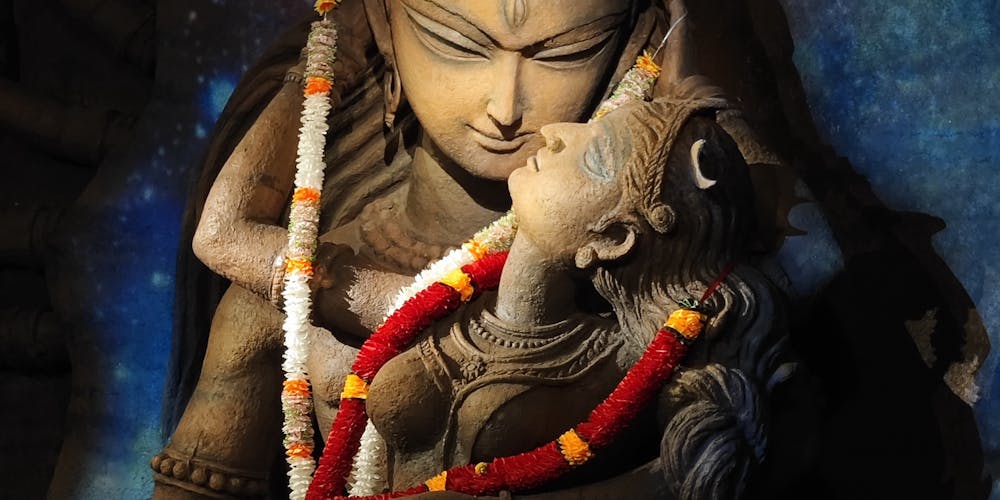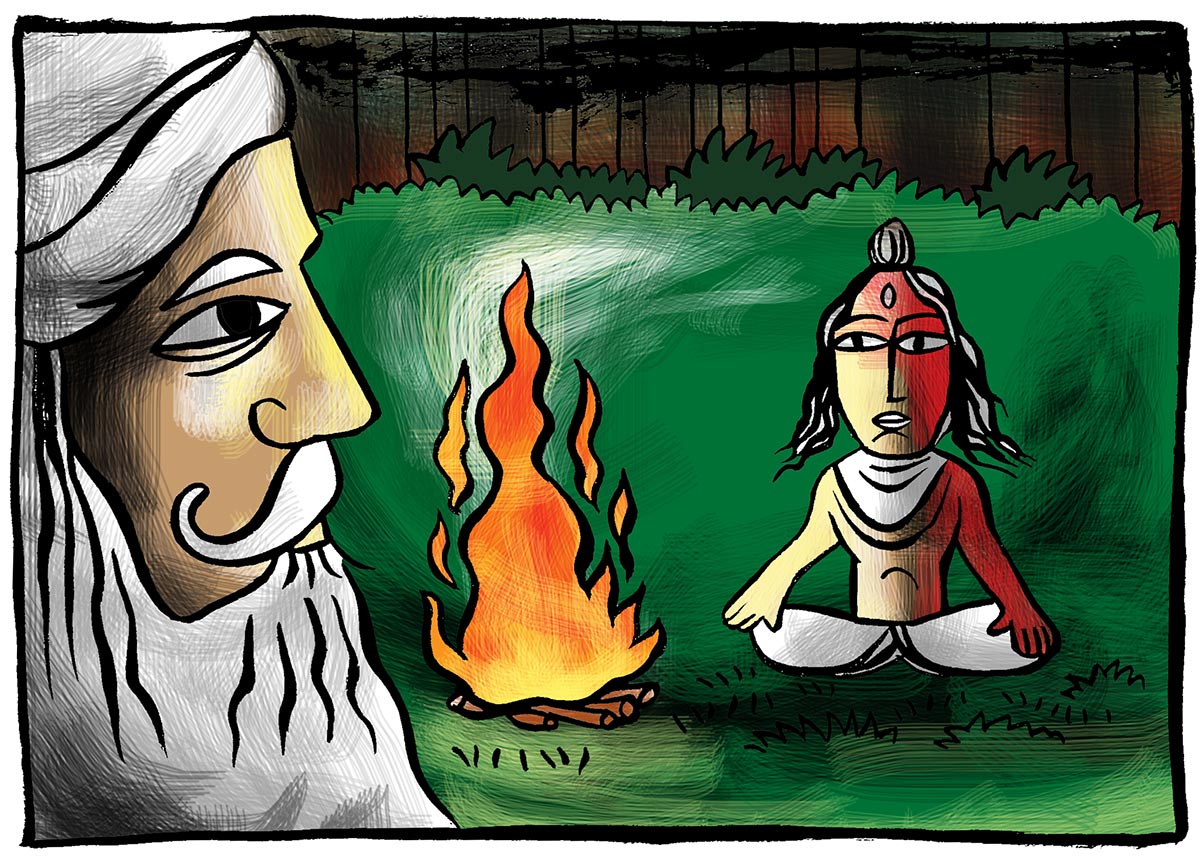Who are the God Parents of the Pandavas
The Mahabharata is not merely a tale of war and rivalry but also a profound exploration of relationships, duty, and divine intervention. One of the most intriguing aspects of this epic is the divine lineage of its characters, particularly the Pandavas. The question arises: Who are the God parents of the Pandavas? This blog post delves deep into the familial ties of the Pandavas, their divine guardians, and the broader implications within the narrative of the Mahabharata.
Understanding the Role of God Parents in the Mahabharata

In ancient Indian tradition, godparents hold a significant role, especially in mythological texts like the Mahabharata. They are often seen as protectors and guiding forces in the lives of their wards, providing not just spiritual guidance but also blessings that can shape destinies.
The concept of godparenting in the Mahabharata goes beyond mere social or familial obligations; it intertwines with themes of dharma (duty/righteousness) and karma (action and its consequences). The God parents of the Pandavas symbolize the intersection of human effort and divine grace, illustrating how challenges are met with celestial support.
Divine figures often serve as catalysts for change and growth in the lives of mortals. In the context of the Pandavas, their godparents help define their personalities, strengths, and weaknesses, ensuring they are endowed with qualities necessary to fulfill their destinies.
Defining God Parent Roles in Hindu Culture

In Hindu culture, godparents are typically expected to take on a mentoring role, guiding children through life’s many challenges. These individuals are often chosen based on personal and spiritual affinities, presenting a blend of human connection and divine purpose.
In the case of the Pandavas, their god parents were not merely a choice of convenience but were deeply intertwined with the events that led to their birth and development. The relationship between godparents and wards in the Mahabharata illustrates a sacred bond, one that transcends the conventional understanding of family dynamics.
The Divine and Mortal Interaction

The interaction between divine beings and mortals is a recurring theme in the Mahabharata. Godparents of the Pandavas were instrumental in establishing this dynamic, bridging the gap between human frailty and divine strength.
This interaction emphasizes the notion that while humans must navigate their paths through trials and tribulations, they are never entirely alone. The support and guidance from celestial beings provide an essential layer of assurance, reinforcing the belief in a higher power overseeing mortal affairs.
Themes of Support and Guidance

The role of godparents extends to being supportive figures who offer guidance when faced with moral dilemmas or tough choices. In many instances throughout the Mahabharata, the Pandavas find themselves in precarious situations where the wisdom of their divine parents comes into play.
These divine figures offer more than just physical protection; they furnish the Pandavas with the mental and emotional fortitude needed to confront their adversaries and fulfill their destiny. By understanding these dynamics, readers can appreciate the greater narrative woven into the Mahabharata.
Exploring the Family Tree of the Pandavas

To fully grasp the significance of the godparents of the Pandavas, one must first explore their extensive family tree. Born into the Kuru dynasty, the Pandavas have a rich lineage marked by powerful characters and complex relationships, further emphasizing the importance of divine influence in their lives.
The story begins with King Shantanu, who marries Ganga and later Satyavati, leading to a series of events that set the stage for the Pandavas’ birth. The clan’s intricacies weave together themes of love, jealousy, and rivalry, showcasing how familial bonds can both uplift and undermine individuals.
Understanding this family tree allows us to appreciate the roles their godparents played in shaping the destinies of Yudhishthira, Bhima, Arjuna, Nakula, and Sahadeva.
The Kuru Dynasty

The Kuru dynasty forms the backbone of the Mahabharata, with King Shantanu at its helm. His marriages to Ganga and Satyavati lay the foundation for future generations, including the Pandavas and their cousins, the Kauravas.
Shantanu’s commitment to dharma and his subsequent decisions create a rippling effect across the narrative, influencing the circumstances around the Pandavas’ birth. The inherent complexities of the Kuru family highlight the interconnectedness of fate and free will, setting the stage for the divine interventions that come later.
Birth of the Pandavas
The births of the Pandavas are extraordinary, steeped in divine blessings that reflect their unique destinies. Each brother is born through the invocation of different deities, showcasing the spiritual aspects of their lineage.
Yudhishthira, the eldest, is bestowed by the god of dharma, while Bhima is granted life by the wind god, Vayu. Arjuna, the central hero, is born from Indra, the king of the gods. The twins Nakula and Sahadeva emerge under the blessings of the Ashwini Kumaras, further solidifying the divine connection throughout their familial lineage.
The Role of Kunti and Madri
Kunti and Madri, the wives of Pandu, represent maternal influences in the lives of the Pandavas. However, their roles extend beyond mere parenthood; they serve as conduits for divine energies, channeling requests to the gods for the births of the Pandavas.
Kunti’s mantra, which allows her to invoke any deity for offspring, illustrates the intersection of human agency and divine will. Similarly, Madri’s invocation of the Ashwini Kumaras showcases the importance of partnerships in achieving one’s goals, reflecting the multifaceted nature of familial roles in the Mahabharata.
The Significance of Divine Figures in Indian Epics

Indian epics are replete with divine beings who guide, protect, and sometimes challenge mortal heroes. The presence of these figures not only enriches the narrative but also serves to reinforce core values such as righteousness and duty.
The significance of divine figures in the context of the Pandavas cannot be overstated. Their godparents serve as archetypes of virtue, embodying ideals that resonate with the overarching themes of the Mahabharata.
Divine Archetypes and Mortal Struggles
Divine figures often function as archetypes representing values such as bravery, wisdom, and compassion. The godparents of the Pandavas serve as embodiments of these traits, offering a standard for the brothers to strive towards amid their mortal struggles.
The mentorship derived from these divine connections helps the Pandavas cultivate their own identities, ultimately allowing them to face the monumental challenges that arise throughout their lives. Each character embodies differing aspects of divinity, serving as an important reminder of the potential for greatness within all individuals.
Moral Lessons from Divine Interactions
The interactions between the Pandavas and their godparents impart critical moral lessons. The influence of divine figures teaches the Pandavas about ethical decision-making, the importance of loyalty, and the need for selflessness in the face of adversity.
These teachings are woven into the very fabric of the narrative, guiding the brothers toward actions that uphold dharma even during moments of despair. Readers can draw parallels between the lessons learned from these divine interactions and their applications in contemporary life, emphasizing the timeless relevance of the Mahabharata.
Reflection of Societal Values
The divine figures in the Mahabharata also reflect societal values inherent in ancient Indian culture. The portrayal of godparents offers insights into the expectations placed upon individuals concerning family dynamics, responsibility, and morality.
As such, the relationships between the Pandavas and their godparents exemplify the ideal balance between divine support and human effort, highlighting the continuing relevance of these themes across generations.
Key Relationships: The Pandavas and Their God Parents

The relationships between the Pandavas and their godparents are integral to the overall narrative of the Mahabharata. As each brother forges their path, the guidance received from their divine parents plays a pivotal role in shaping their character and decisions.
Understanding these relationships provides a deeper insight into the narrative’s complexity, revealing how the threads of fate intertwine through divine intervention.
The God Parents of Yudhishthira
Yudhishthira, the eldest Pandava, is known for his unwavering sense of justice and adherence to truth. His godfather, Dharma (the god of righteousness), profoundly influences his character, instilling the virtues of honesty and integrity.
This divine connection manifests in Yudhishthira’s choices throughout the Mahabharata, as he faces numerous tests of his moral compass. From gambling away his kingdom to facing the ultimate test of truth against Yudhishthira himself, the lessons imparted by Dharma illustrate the weight of responsibility borne by the eldest sibling.
The Influence of Vayu on Bhima
Bhima, the second Pandava, is characterized by his immense physical strength and fierce loyalty. His god father, Vayu, the wind god, shapes Bhima’s identity, imbuing him with unparalleled might and courage.
Vayu’s influence is evident in Bhima’s exploits throughout the epic, particularly during battles where brute strength is critical. However, Bhima’s connection to Vayu goes deeper than mere physical prowess; it also speaks to resilience and determination. Bhima’s encounters reflect the importance of harnessing innate abilities while staying true to one’s principles.
Arjuna and His Divine Connection to Indra
Arjuna, perhaps the most celebrated warrior of the Pandavas, has a unique relationship with his god father, Indra. As the king of the gods, Indra equips Arjuna with skills, weapons, and the confidence needed to rise to greatness.
This divine mentorship is pivotal during the Kurukshetra war, where Arjuna grapples with his responsibilities as a warrior versus his love for family. Indra’s presence compels Arjuna to confront his inner turmoil, reminding him of his role as a protector of dharma. The dialogue between Arjuna and Krishna further highlights how divine guidance aids decision-making in times of conflict.
Nakula and Sahadeva: Blessings of the Ashwini Kumaras
The twin brothers, Nakula and Sahadeva, embody duality in their divine connection with the Ashwini Kumaras, the twin gods of medicine and health. Their relationship emphasizes the importance of balance and harmony in life.
Through their divine guardians, Nakula and Sahadeva receive not only physical agility but also wisdom and healing abilities. Their nurturing influence aids in creating a well-rounded characterization, vital in complementing the strengths of their elder siblings throughout various challenges faced by the Pandavas.
Who Were the Divine Guardians of Yudhishthira, Bhima, Arjuna, Nakula, and Sahadeva?

Delving deeper into the individual relationships between the Pandavas and their respective divine guardians reveals fascinating insights into their characters and contributions to the Mahabharata. Each godparent brings distinct qualities to their wards, shaping their destinies in profound ways.
Yudhishthira and Dharma
Yudhishthira’s relationship with Dharma transcends mere parental guidance; it embodies a quest for truth and righteousness. This divine connection influences every aspect of Yudhishthira’s life, making him a paragon of virtue even amidst great adversity.
Despite facing challenges that would tempt most to stray from their morals, Yudhishthira remains steadfast, guided by his god father’s principles. This relationship serves as a beacon of hope, demonstrating how adherence to one’s values can pave the way for eventual triumph.
Bhima and the Wind God Vayu
Bhima’s connection with Vayu lays the groundwork for the valorous feats he achieves throughout the Mahabharata. As the wind god, Vayu bestows physical strength upon Bhima, allowing him to become a formidable warrior.
However, this relationship transcends raw strength; it is also emblematic of loyalty and the bonds of brotherhood. Bhima’s fierce dedication to protecting his family and avenging wrongs reflects the qualities imparted by Vayu, making him a symbol of resilience amid chaos.
Arjuna and Indra: A Hero’s Journey
Arjuna’s journey under the tutelage of Indra highlights the dynamic interplay between divine blessings and human initiative. Indra’s gifts equip Arjuna with the skills necessary to excel as a warrior, yet it is the moral dilemmas he faces—especially during the Bhagavad Gita—that define his character.
Indra’s influence is a double-edged sword, challenging Arjuna to reconcile the demands of duty with personal desires. This relationship encapsulates the essence of heroism: the ability to rise above internal conflicts and make choices that align with the greater good.
Nakula and Sahadeva and Their Dual Guardianship
The Ashwini Kumaras impart unique qualities to Nakula and Sahadeva, emphasizing the importance of health, wellness, and balanced living. Their dual nature reflects the necessity of harmony in life, providing insights relevant to both personal and interpersonal dynamics.
The relationship between the twins and their god parents reinforces the idea that success is best achieved through unity and collaboration. Their combined efforts exemplify the significance of teamwork in overcoming obstacles, underscoring the essential message that we are stronger together.
Mythological Insights: God Parents of the Pandavas

The presence of divine guardians elevates the narrative of the Pandavas, enhancing the depth of their journeys through mythological insights. The role of these godparents mirrors the complexities of human emotions and relationships, offering reflections on the human experience.
Divine Wisdom and Human Experience
The godparents of the Pandavas offer invaluable wisdom, serving as mentors and guides who help navigate the tumultuous landscape of life. Their divine attributes provide the Pandavas with insights that transcend mortal limitations, illustrating the importance of seeking guidance in times of struggle.
This relationship emphasizes the unity of divine wisdom and human experience, echoing the notion that growth often stems from the challenges we face. The teachings imparted by these divine figures underscore the fundamental value of humility and the willingness to learn from one’s experiences.
The Interplay of Fate and Free Will
The interplay between fate and free will is a central theme in the Mahabharata, particularly regarding the relationships between the Pandavas and their godparents. While divine figures offer guidance and blessings, the choices made by the Pandavas reveal their agency in shaping their destinies.
This dynamic invites readers to contemplate the delicate balance between predetermined paths and individual decisions. The godparents’ influence does not negate the importance of personal accountability, serving as a reminder that our actions determine our fates.
Symbolism of God Parents in the Epic
The godparents of the Pandavas symbolize a higher moral authority, reinforcing the virtues of compassion, justice, and courage. Their influence elevates the narrative, providing important reminders of the need for mentorship and guidance in the human experience.
By embracing the symbolism represented by these divine figures, readers can extract meaningful lessons about the significance of community, support systems, and the shared responsibility we have in uplifting one another.
Unraveling the Mysteries of the Pandavas’ Lineage

The lineage of the Pandavas is steeped in mystery and intrigue, revealing layers of complexity that contribute to their character arcs. Understanding their ancestry and divine affiliations enhances the appreciation of their journeys throughout the Mahabharata.
The Curse of Pandu: A Catalyst for Divine Intervention
Pandu’s curse, which prevents him from fathering children, acts as a catalyst for the divine interventions that lead to the births of the Pandavas. This situation underscores the theme of sacrifice and the lengths to which individuals will go to fulfill their destinies.
The necessity for divine assistance emphasizes the interconnectedness of human actions and cosmic forces, illustrating how challenges can pave the way for unexpected solutions. This adds a layer of depth to the narrative, inviting readers to ponder the complexities of fate.
The Birth Stories: A Fusion of Mortal and Divine
Each of the Pandavas has a unique birth story that highlights the fusion of mortal and divine elements. The invocation of deities not only grants them life but also shapes their identities, endowing them with specific attributes that resonate throughout the epic.
These stories act as allegories for various human experiences and virtues, weaving together themes of sacrifice, devotion, and the pursuit of greatness. By examining these narratives closely, readers can glean lessons applicable to their own lives.
The Legacy of Divine Guardianship
The legacy of the Pandavas’ divine guardians extends beyond their lifetimes, impacting the course of history within the Mahabharata. Their relationships with their godparents establish a framework for understanding the importance of mentorship and guidance in shaping one’s journey.
These divine figures leave an indelible mark on the lives of the Pandavas, fostering a sense of responsibility that echoes across generations. The legacy of their relationships speaks to the enduring value of connection, nurturing, and the impact of those who guide us along our paths.
Influence of God Parents on the Lives of the Pandavas

The influence of the godparents of the Pandavas permeates every aspect of their lives, shaping their identities, choices, and ultimately, their destinies.
The Guiding Light of Righteousness
The godparents’ emphasis on righteousness and moral conduct is a constant guiding force for the Pandavas. Their teachings empower the brothers to uphold dharma, even when faced with overwhelming challenges.
This focus on righteous living fosters a deep sense of responsibility among the Pandavas, compelling them to act in accordance with their values. As they navigate the complexities of their lives, the wisdom imparted by their godparents becomes a touchstone for their decisions.
Shaping Personal Identities
The distinct qualities inherited from their divine guardians play a crucial role in shaping the individual identities of the Pandavas. Each brother’s unique gifts reflect the characteristics attributed to their god parents, illustrating how lineage and mentorship intertwine.
For instance, Bhima’s strength, Yudhishthira’s sense of justice, and Arjuna’s skill in battle are all manifestations of their respective divine influences. This individuality underscores the richness of their characters, revealing how diverse attributes can converge to create a harmonious whole.
Navigating Moral Dilemmas
The teachings from the godparents equip the Pandavas with the tools needed to navigate moral dilemmas throughout the Mahabharata. Their divine guidance acts as a moral compass, assisting the brothers in making choices that align with their values.
From Yudhishthira’s commitment to truth to Arjuna’s internal struggles concerning duty and attachment, the influence of the godparents fosters a heightened awareness of the complexities inherent in moral decision-making. This nuance amplifies the narrative, shedding light on the profound struggles faced by the characters.
The Divine Connection: God Parents in the Mahabharata

The relationships between the Pandavas and their godparents form an intricate tapestry within the larger narrative of the Mahabharata. These connections go beyond mere familial ties; they embody the essence of divine guidance interwoven with human experience.
A Source of Strength Amidst Adversity
In times of adversity, the divine guardians provide the Pandavas with strength and resolve, reminding them that they are never alone in their struggles. The support received from their godparents creates a sense of belonging and reassurance, bolstering their confidence as they face formidable challenges.
This divine connection reflects the universal truth that, regardless of the trials we encounter, we can often draw strength from the support of others—both earthly and divine. The bond between the Pandavas and their godparents serves as a poignant reminder of the importance of community in navigating life’s uncertainties.
The Interconnectedness of Beings
The relationships between the Pandavas and their godparents exemplify the interconnectedness of all beings within the universe. The narrative illustrates that the divine and mortal realms are intricately linked, with each influencing the other in profound ways.
This interconnectedness emphasizes the importance of humility and gratitude, inviting readers to consider their own relationships with mentors, teachers, and guides. The divine connections woven throughout the Mahabharata encourage us to recognize the impact of those who shape our journeys.
Legacy of Divine Mentorship
The legacy of divine mentorship resonates throughout the Mahabharata, permeating the lives of the Pandavas and the broader narrative. The teachings imparted by their godparents ripple outward, influencing future generations and underscoring the importance of passing down knowledge and wisdom.
This legacy serves as a reminder of the enduring impact that mentorship can have on individuals, communities, and cultures. The relationships between the Pandavas and their godparents inspire readers to seek out and nurture connections that foster growth and learning.
Comparative Analysis: God Parents in Hindu Mythology

The theme of god parents is not confined solely to the Mahabharata; it finds resonance throughout various Hindu mythologies. A comparative analysis offers insights into how these relationships manifest across different narratives and settings.
Archetypes Across Texts
Similar to the Pandavas, several mythological figures across Hindu texts possess divine mentors or guardians who guide their journeys. For example, Lord Rama’s relationship with Vishnu epitomizes the concept of divine guidance, mirroring the dynamic observed between the Pandavas and their godparents.
These archetypes underscore the universality of divine mentorship in shaping heroic narratives, reinforcing the belief that strength often derives from the support of higher powers.
Diverse Manifestations of Divine Guidance
In different mythological contexts, the manifestations of divine guidance vary widely. Some texts depict godparents as active participants in their wards’ lives, while others present them as abstract representations of values or principles.
The diversity of these portrayals enriches the tapestry of Hindu mythology, allowing for varied interpretations of the significance of mentorship and divine involvement in human affairs. The relationships seen in the Mahabharata demonstrate a multifaceted approach to understanding the complexity of these connections.
Cultural Reflections
Through the lens of divine guardianship, Hindu mythology reflects cultural values related to family, duty, and the importance of maintaining harmony in relationships. The emphasis on mentorship and guidance serves as a vehicle for transmitting cultural teachings across generations.
The similarities observed in various mythological narratives highlight the shared human experience of seeking guidance, affirmation, and support—a sentiment that resonates with audiences irrespective of time or place.
Conclusion

The question of Who are the God parents of the Pandavas? unveils a rich tapestry of relationships, divine influences, and moral teachings embedded within the Mahabharata. The godparents of the Pandavas play pivotal roles in shaping their destinies, providing wisdom and guidance that resonate throughout the epic.
Their divine guardians exemplify the intricate interplay between fate and free will, highlighting the importance of mentorship and the shared human experience. Through their relationships, the Pandavas learn valuable lessons about righteousness, courage, and the complexities of moral choice.
Exploring the godparents of the Pandavas not only enhances our understanding of these characters but also invites reflection on the broader themes presented in Hindu mythology. Ultimately, the legacy of divine guardianship serves as a reminder of the enduring significance of connection, support, and the pursuit of a righteous path in the journey of life.

